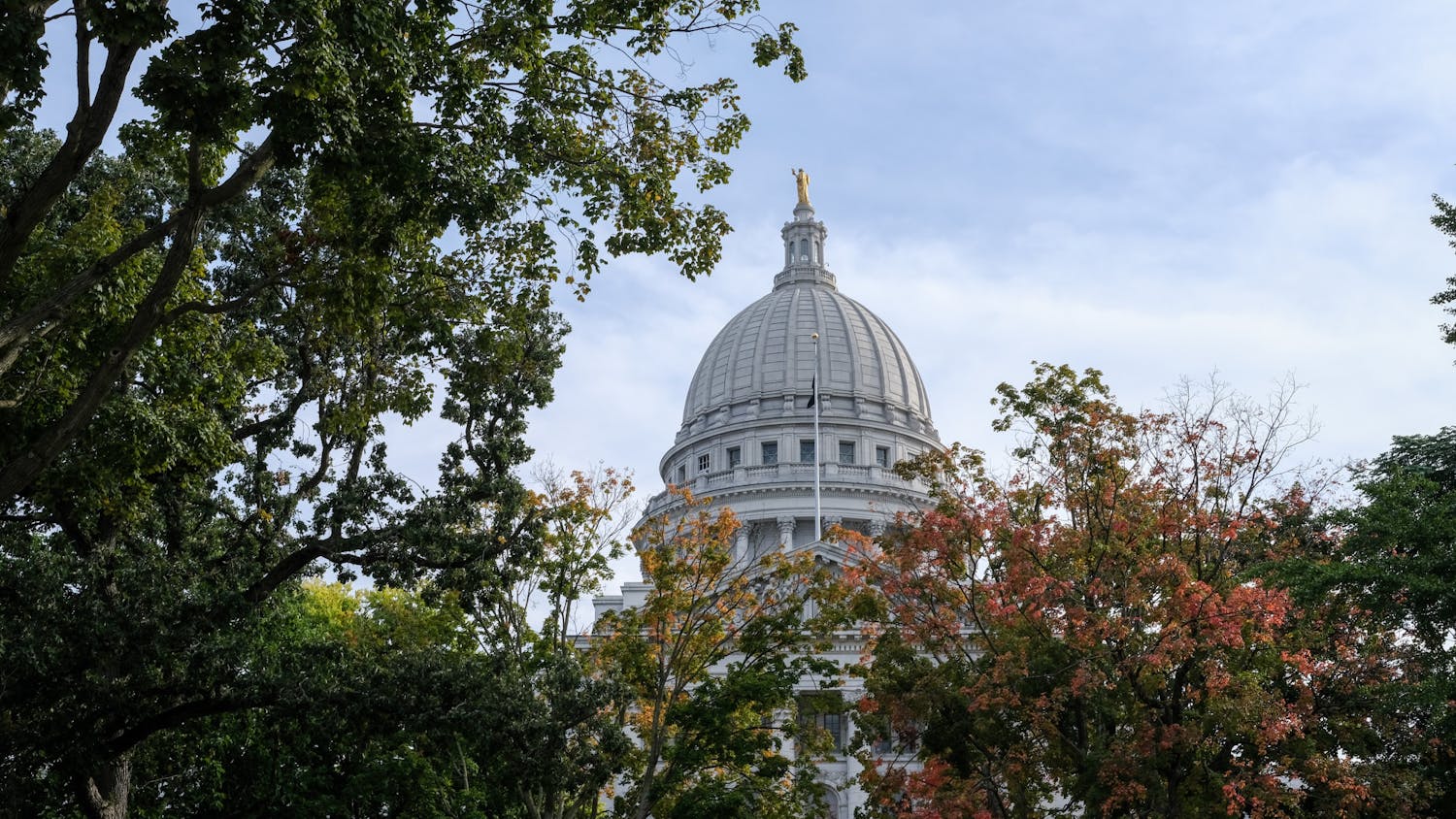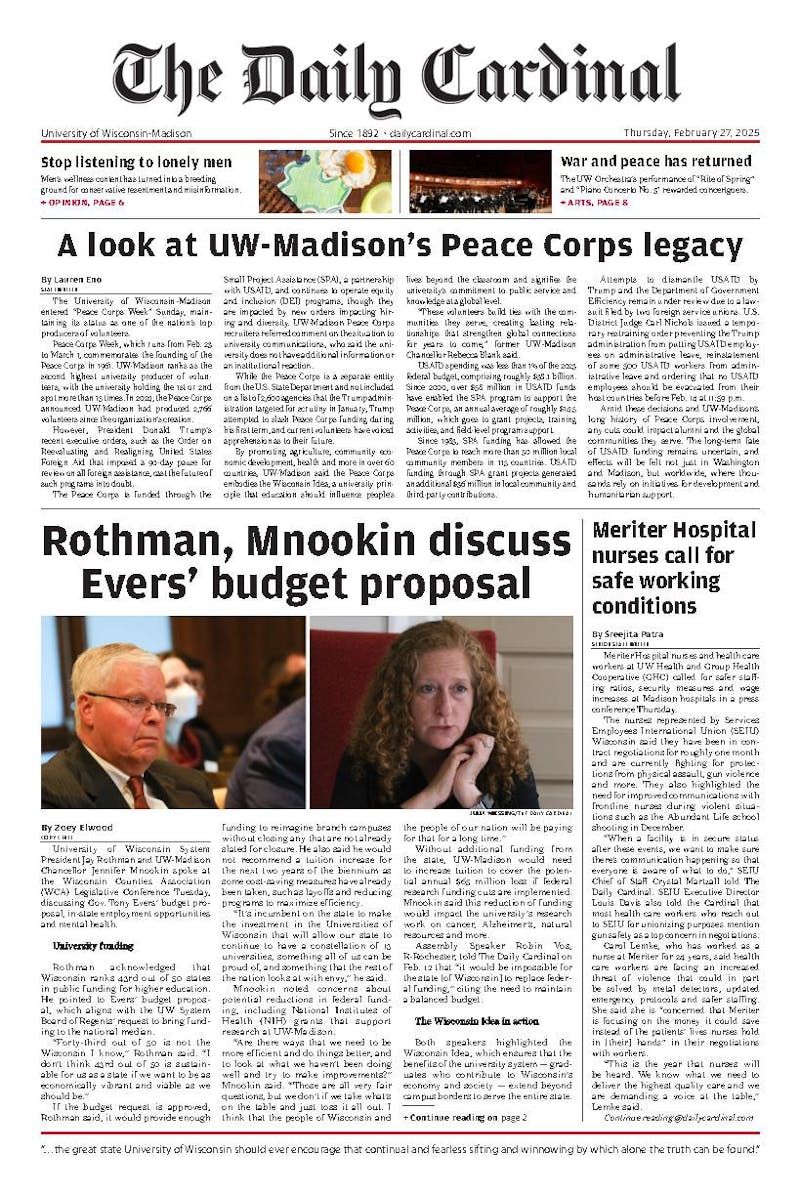University of Wisconsin-Madison Chancellor Jennifer Mnookin announced Friday morning the university will “generally refrain” from taking a position on “issues or events that are in the national, international, state, or local spotlight,” following criticism over previous statements surrounding Israel’s war in Gaza and the encampments last spring.
University leaders, including chancellors, vice chancellors, deans and department chairs won’t release statements on areas of public concern or controversy in their official capacity or on behalf of UW-Madison under the new Institutional and Public Position Statements policy.
The new policy specifies institutional statements will only be considered and issued if the subject they are speaking on “directly affects UW-Madison’s ability to fulfill its core functions of teaching, researching, and public service” or “meaningfully disrupts or otherwise significantly impacts campus operations.”
“When the institution takes a point of view on a matter of public concern or controversy, however well intended, it risks crowding out other points of view…it risks harm to one of the most core and fundamental dimensions of a university: free and open debate,” Mnookin wrote in an email to all students and staff.
Faculty and staff are similarly prohibited from issuing public position statements on behalf of UW-Madison or any units they lead in their capacity as an employee. Statements made as “private citizens or as individual scholars” are permitted so long as it cannot be “reasonably perceived” to be made on behalf of the university.
The policy acknowledges the distinction between a personal and institutional role “may not always be apparent” and tells university leaders and employees to be clear when they are speaking in a personal capacity or when they are speaking in their institutional role.
The policy does not apply to shared governance groups like the Associated Students of Madison or the Faculty Senate but notes that they should be “clear that they are speaking on behalf of their shared governance groups and not on behalf of the institution.”
UW-Madison spokesperson John Lucas told The Daily Cardinal the policy’s goal is to “preserve academic freedom and free expression, while also upholding the university’s values of pluralism and inclusion.”
The Cardinal asked if faculty and staff would face consequences if their personal statements were perceived as representing the university. Lucas said the policy isn’t intended to be “punitive,” and noted the Office of Strategic Communications would continue sharing information about it to further help communicators and campus leaders better understand it.
Mnookin said statements have often been intended to show concern for members of the community hurting due to events in the broader world, but since other students may feel excluded “by what is said and by what is left unsaid,” it can diminish the overall sense of belonging in the community.
“There will still be limited times when the university should speak as an institution,” Mnookin said. “If, for example, academic freedom itself were threatened, the university should not stay silent, and similarly, in other instances when the impact on our operations and community is direct, concrete and local, some statement in institutional voice may still be warranted.”
Mnookin said she believes this policy “will strengthen [the] university and make more space for dialogue and debate.”
UW-Madison released the policy on the same day as the UW System’s interim Administrative Policy on Institutional Statements, which said chancellors should maintain “institutional neutrality.” Mnookin said UW-Madison’s policy is “consistent” with the interim policy, which is in effect until October 2025.
This follows a growing trend of universities across the U.S.that have also adopted policies of “institutional neutrality.” In the last four days, University of Pennsylvania, Stanford University and Washington State University released similar statements of neutrality. Yale University is also considering approving one.
Lucas told the Cardinal this policy has been under development for several years and “is not a direct response to the Oct. 7 attacks, Gaza or the encampment.”
The policy also follows updates to UW-Madison’s protest policy, called “clearly unconstitutional” by a free speech expert in an interview with the Cardinal.
After the Oct. 7 Hamas attack on Israel last year, Mnookin released a statement on the “tragic events in Israel and the Palestinian Territories.”
"Politics in the Middle East are exceedingly fraught, and there are many deeply held perspectives,” Mnookin said in the October statement. “But the massacre of ordinary citizens, in their homes, at music concerts, in their cars and on the streets of their villages, is a horror that we must all, in our common humanity, condemn.”
At the time, Mnookin said she was skeptical people in her leadership roles should “frequently comment” on global or world events.
This article was updated on Saturday, Sept. 7 at 12:45 p.m. to include the university’s response.
Annika Bereny is a Senior Staff Writer and the former Special Pages Editor for The Daily Cardinal. She is a History and Journalism major and has written in-depth campus news, specializing in protest policy, free speech and historical analysis. She has also written for state and city news. Follow her on Twitter at @annikabereny.
Gavin Escott is the campus news editor for the Daily Cardinal. He has covered protests, breaking news and written in-depth on Wisconsin politics and higher education. He is the former producer of the Cardinal Call podcast. Follow him on X at @gav_escott.
Mary Bosch is the college news editor and photo editor emeritus for The Daily Cardinal. She is a second year journalism and sociology student with a focus in data. Follow her on twitter: @Mary_Bosch6
Noe Goldhaber is the college news editor and former copy chief for The Daily Cardinal. She is a Statistics and Journalism major and has specialized on a wide range of campus topics including protests, campus labor, student housing, free speech and campus administration. She has done data analysis and visualization for the Cardinal on a number of stories. Follow her on Twitter at @noegoldhaber.






